What you need to know before traveling to Cambodia
Are you planning a business trip to Cambodia? Whether it's for a meeting, a training course or a company visit, this Southeast Asian country is full of wonders to discover. However, it's crucial to be well-prepared so that your stay goes off without a hitch. In this article, we give you tips on how to organize your business trip to Cambodia: entry formalities, transport, accommodation, cuisine, security and much more.
Follow our recommendations for an unforgettable personal and professional experience!
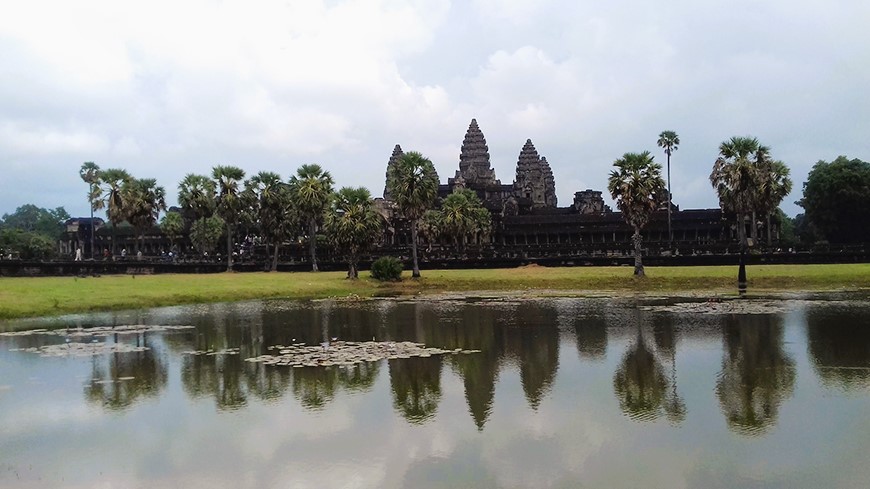
Angkor Complex, Siem Reap - Photo : Trusted DMC Team
Why choose Cambodia for your next business trip?
Cambodia is a land rich in history, magnificent scenery and culture. It's an ideal destination for business travel and MICE events. The country is undergoing rapid economic growth and offers the perfect setting for combining work and discovery. It combines modern infrastructures with ancestral traditions.
Cambodia is easily accessible from major Asian and European cities, thanks to its strategic location in the heart of Southeast Asia. Phnom Penh and Siem Reap boast luxury hotels, state-of-the-art convention and exhibition centers, and a variety of restaurants and entertainment venues.
The cost of living in Cambodia is relatively low, making it possible to organize MICE events at competitive prices. Cambodian culture is rich and fascinating, with majestic temples, floating villages and ancient traditions.
Cambodians are renowned for their hospitality and warm smiles.
Trusted DMC tips for a successful business trip to Cambodia
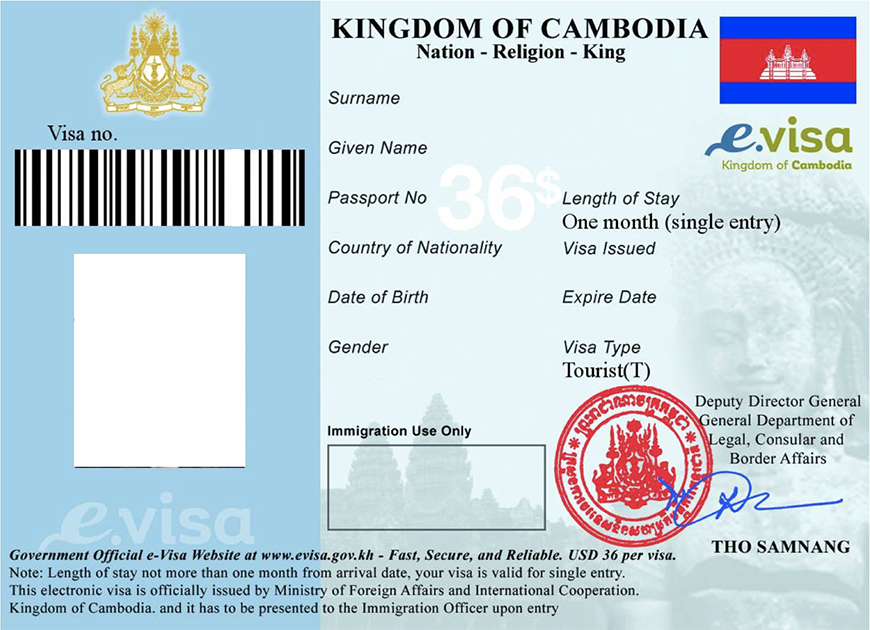
e-Visa : Fast, Secure, Reliable - Photo : Internet
Cambodia entry formalities
Before leaving for Cambodia, it is important to have a passport valid for at least 6 months after your return. Check that you have 2 blank pages available. Most travelers will need a visa. You can apply for an
e-Visa online (cost: 36 USD)before you leave, or a visa on arrival at the international airports of Phnom Penh and Siem Reap, or at the land border crossings of Poipet and Koh Kong. The cost of a visa for a 30-day stay is 30 USD.
If you are traveling for business reasons, don't forget to bring documents justifying the reason for your trip, such as a letter of invitation from your Cambodian partner. It's important to note that visa issuance times can vary, so be sure to apply early. Once you're in Cambodia, make sure you keep your passport and visa handy, as you'll be asked for them regularly.
Getting around Cambodia
When you arrive in Phnom Penh, Siem Reap or any other city, you have several options for getting around: tuk-tuk, cab, bus, train or car rental. Tuk-tuks are very practical for short trips around town. Be sure to negotiate the price before you get in. Cabs are also common, but choose those affiliated to a reliable company. For longer journeys, opt for buses or trains for greater comfort. Car rental with driver is a good option, especially if you're traveling to remote areas. Download a VTC app like Grab for easy booking. Whatever mode of transport you choose, make sure you have all the information you need about fares and itineraries before you leave.
Where to stay on your business trip to Cambodia?
If you need to find accommodation for a business trip to Phnom Penh, Siem Reap or another Cambodian city, there are many options to suit your needs. Upscale hotels are often equipped with everything you need for a business trip, including meeting rooms, business centers and high-speed Wi-Fi. International chains such as Sofitel, Shangri-La and Raffles have establishments in Cambodia. If you're on a tighter budget, you can opt for 3 or 4-star hotels, which also offer good infrastructure. Apartment hotels are also a good option for longer stays. Whether you choose a top-of-the-range hotel or a more economical one, it's important to ensure that the location is convenient for your business travels. It's also advisable to book in advance, especially during the peak tourist season.
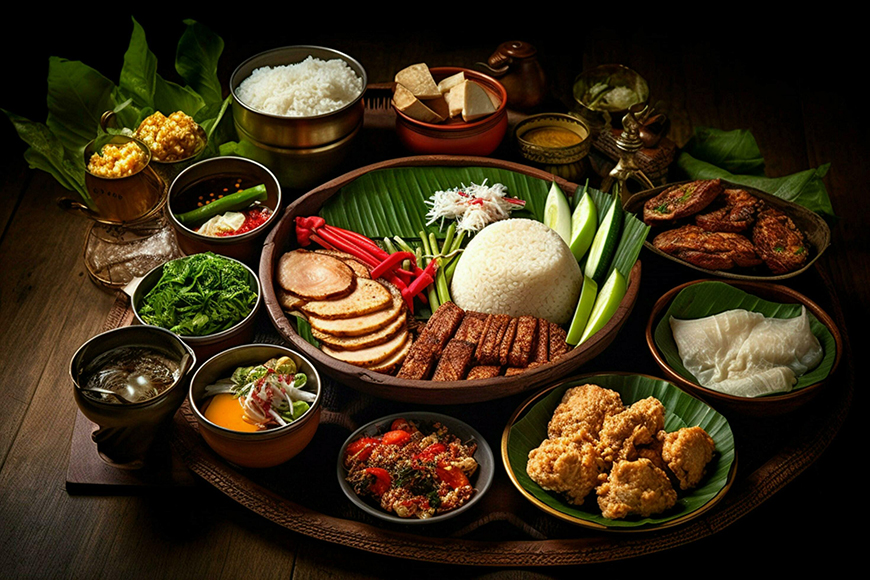
Delicious cuisine of Cambodia - Photo : Internet
Eating and drinking in Cambodia
Cambodian cuisine is a delicious culinary experience! You can sample tasty local dishes based on rice, fish and vegetables. Don't miss the famous amok, a fish curry steamed in a banana leaf, or samlor korkor, a vegetable stew. For breakfast, choose a dish of num pang, sandwiches filled with meat, vegetables and sauces. In the big cities, there are also plenty of international restaurants for business meals. Hotels often offer excellent dining options, so don't hesitate to try their specialties. While you're out and about, also look out for small street stalls offering delicious fried food and kebabs. However, be sure to ask about hygiene. To make sure you have a good time, it's best to make reservations at the best restaurants in town.
Activities and leisure in Cambodia
Although your trip is mainly for business, take the opportunity to discover Cambodia's rich culture. In Phnom Penh, stroll through the colonial quarter, visit the Royal Palace and the National Museum. In Siem Reap, the
Angkor temples are a world heritage jewel. You can also explore the floating villages of the Tonlé Sap lake. For relaxation, visit the beaches of Sihanoukville or the islands of the Koh Rong archipelago. Trekkers will love the verdant mountains of the northeast. And for thrill-seekers, try quad biking or kayaking in breathtaking scenery. Whatever your desires, Cambodia will surprise and seduce you!
Safety and practical advice
Before leaving on a trip, it's essential to make sure you're covered by your insurance for medical care. It's also important to get vaccinated against common illnesses such as yellow fever, influenza and hepatitis A and B. For appropriate advice, it is advisable to consult your doctor. If you take medication regularly, remember to bring your prescription with you. Once there, avoid walking alone at night in isolated areas, and be careful with your belongings in crowded places. In the event of a problem, don't hesitate to contact the authorities or your hotel. Also, as Cambodia is a very hot and humid country, it's important to protect yourself from the sun and stay well hydrated. Finally, it's important to be patient and respect local habits and customs. Cambodians attach great importance to politeness and humility. If you follow these few tips, you'll be able to make the most of your stay in Cambodia!
Learn basic Khmer phrases
Although English is spoken in tourist areas, learning a few Khmer phrases can enhance your experience.
Hello: “Chum reap suor” (pronounced “choum ree-ep soo-oh”)
Thank you: “Aw kohn” (pronounced “ah kohn”)
Goodbye: “Chum reap leah” (pronounced “choum ree-ep lee-ah”)
.jpg)
Ta Prohm, the "Tomb Raider Temple" - Photo : Trusted DMC Team
Things to know before travelling to Cambodia
Cambodia's climate in a nutshell
Tropical: Hot temperatures all year round (around 30°C).
Two distinct seasons:
Rainy season (May to October):
- Short, intense showers, especially in the afternoon/evening.
- Humid and muggy air.
- Higher temperatures.
- Not recommended for visiting.
Dry season (November to April)
- More pleasant temperatures and sunny days.
- Ideal for visiting the country.
- December and January: cooler temperatures.
- April: hot (35°C).
Best time to visit: Dry season (November to April), especially December/January for cooler temperatures. If you like the heat, April is ideal.
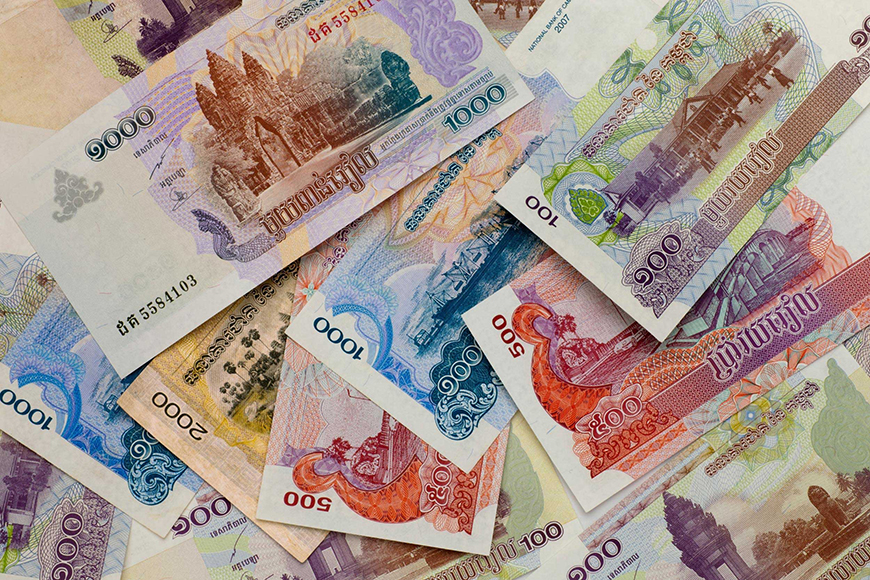
Cambodian riel banknotes - Photo : Internet
Currency
The Cambodian riel is the official currency of Cambodia. The US dollar is also widely used. It is advisable to carry a combination of both currencies. ATMs are available in major cities, but in rural areas, cash is king. Plan short breaks to improve convenience.
Respecting customs
Cambodia is a Buddhist country, and the local culture is steeped in spirituality and tradition. It's essential to respect local customs and habits, especially when it comes to dress and gestures.
It is advisable to avoid wearing clothes that are too short or too low-cut, especially in temples and places of worship.
It is customary to remove one's shoes before entering a house or temple.
It is impolite to touch people's heads, which are considered the most sacred part of the body.
It is frowned upon to use one's foot to point at something or someone, as this is considered a rude gesture.
Tuk-Tuks and negotiating prices
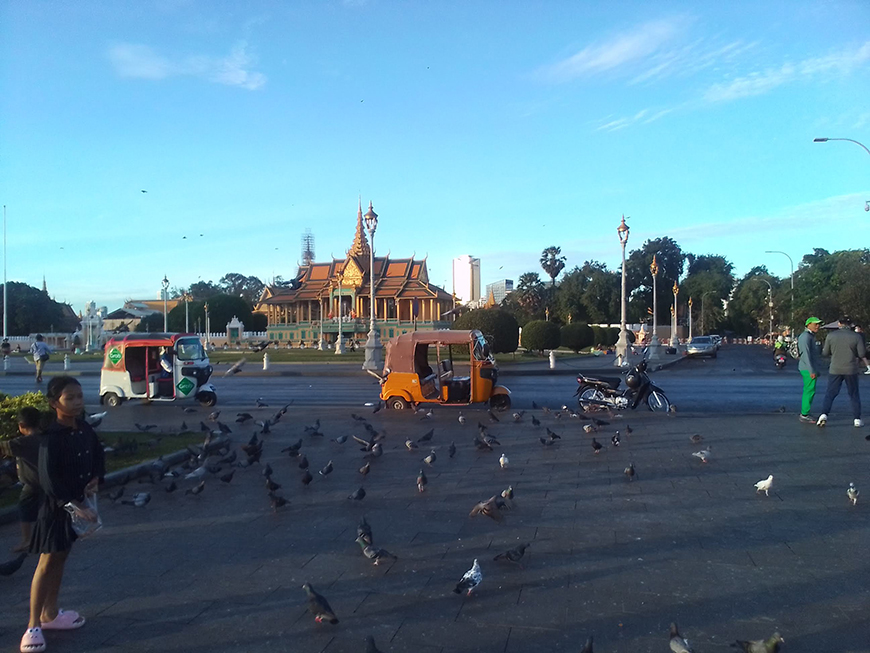
Tuk Tuk waiting on Sisowat quay, Phnom Penh - Photo : Trusted DMC Team
Tuk-tuks, three-wheeled motorized vehicles, are a popular way to get around Cambodia. Be sure to negotiate the price before boarding, as fares can vary. Be polite but determined when negotiating. Don't forget that tuk-tuks are a great way to discover local markets and attractions.
Conclusion
Cambodia is an ideal choice for companies looking for a unique and affordable setting for their business events. With its rich cultural heritage, beautiful scenery and vibrant culture, Cambodia offers an environment conducive to the success of any business event.
Contact your MICE expert to organize your business trip to Cambodia and enjoy an unforgettable experience.